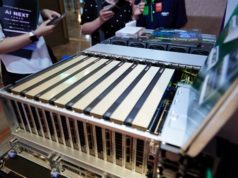NVIDIA today unveiled two of its most affordable Pascal-based desktop product yet, the entry-level GeForce GTX 1050 Ti and the GeForce GTX 1050.
The GeForce GTX 1050 Ti is based on the GP107-400 silicon, packing 768 CUDA cores, 48 Texture Mapping Units, 32 Raster Operation Units, and 4GB of GDDR5 memory on a 128-bit wide memory bus. As for the clocks, reference cards will ship with a 1290 MHz core clock and a 1392 MHz boost clock. The memory has been clocked at 7.00 GHz. One important thing to note is that the GP107 GPU is not manufactured on a 16nm FinFET process like other Pascal GPUs, but is instead fabbed on a 14nm process by Samsung. As revealed by leaks already, the two cards can be powered solely by the PCIe slot and do not require any additional PCIe power connector, thanks to a 75W TDP rating.
The GeForce GTX 1050 on the other hand is based on the GP107-300 silicon, featuring 640 CUDA cores, 40 Texture Units, 32 ROPs, and 2GB of GDDR5 memory on a 128-bit memory interface. Reference GTX 1050 cards will feature a 1354 MHz core and 1455 MHz boost clock. The 2GB of GDDR5 memory is clocked at 7.00 GHz like on the GeForce GTX 1050 Ti. In terms of pricing, NVIDIA has priced the GeForce GTX 1050 Ti at $139, while the GeForce GTX 1050 has been priced at $109. Both the cards will be going on sale in most markets around the world starting October 25th.
Via: Anandtech





![[CES 2026] Quest For Perfect Color…Samsung To Push](https://loginby.com/itnews/wp-content/uploads/2025/12/CES-2026-Quest-For-Perfect-Color…Samsung-To-Push-100x75.jpg)

